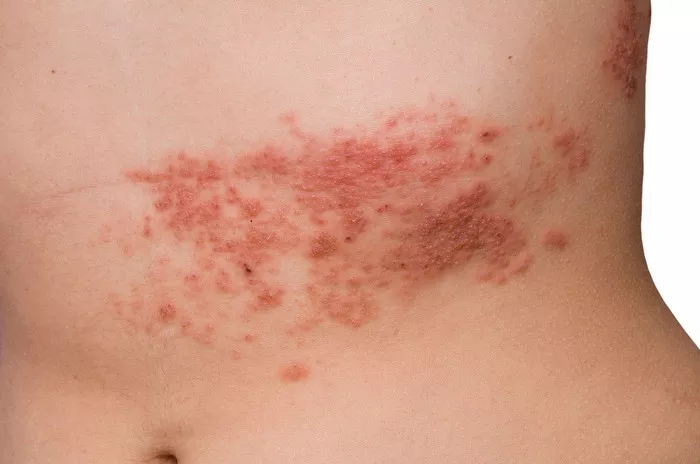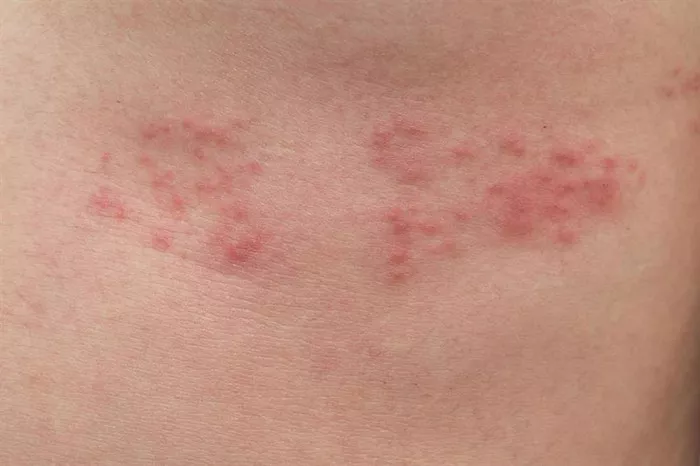Hidradenitis Suppurativa (HS) is a chronic inflammatory skin condition characterized by painful nodules, abscesses, and sinus tracts, typically affecting areas with apocrine glands, such as the axillae, groin, and perineum. This condition can significantly impact a person’s quality of life due to pain, discomfort, and recurrent infections. While the exact cause of HS remains unclear, several factors, including genetics, hormonal changes, and immune dysfunction, are believed to contribute to its development.
One factor that has garnered significant attention in recent years is the relationship between HS and obesity. Obesity is not only a risk factor for developing HS but may also exacerbate the severity of the condition. Research has shown that individuals with obesity are more likely to experience more extensive and severe HS lesions compared to those with a healthy weight. This association has led to speculation about the potential role of weight loss in managing HS symptoms and even inducing remission. But does weight loss truly make a difference in the management of HS?
Understanding the Link Between HS and Obesity
Before delving into the impact of weight loss on HS, it’s essential to understand why obesity is associated with this condition. Adipose tissue, or fat, is metabolically active and produces various inflammatory molecules known as adipokines. Excess adipose tissue in obesity leads to chronic low-grade inflammation throughout the body, including the skin. This inflammatory environment may exacerbate HS by promoting the formation of inflamed nodules and abscesses.
Moreover, obesity is often associated with insulin resistance and metabolic syndrome, conditions characterized by abnormal glucose metabolism and dyslipidemia. Insulin resistance and hyperinsulinemia have been implicated in the pathogenesis of HS, as insulin promotes the proliferation of keratinocytes and stimulates the production of androgens, both of which can contribute to the development of HS lesions.
The Impact of Weight Loss on HS
Given the association between obesity and HS, it is reasonable to speculate that weight loss may have a beneficial effect on HS symptoms. Indeed, several studies have investigated the impact of weight loss interventions on HS severity and outcomes.
A systematic review published in the Journal of the American Academy of Dermatology in 2019 analyzed the results of 12 studies evaluating the effects of weight loss on HS. The review found that weight loss, whether achieved through lifestyle modifications, bariatric surgery, or a combination of both, was associated with improvements in HS severity, reduction in lesion count, and decreased pain and inflammation.
In one prospective study published in JAMA Dermatology, researchers followed 64 patients with HS who underwent bariatric surgery for weight loss. They found that a significant proportion of patients experienced complete remission of HS symptoms following surgery, with improvements observed as early as six months postoperatively. These findings suggest that substantial weight loss can lead to significant improvements in HS severity and may even result in remission for some individuals.
Mechanisms Underlying the Benefits of Weight Loss
Several mechanisms may explain the beneficial effects of weight loss on HS. Firstly, weight loss reduces the production of adipokines and inflammatory cytokines associated with obesity-induced inflammation. By decreasing systemic inflammation, weight loss may alleviate the inflammatory processes underlying HS and reduce the frequency and severity of flare-ups.
Secondly, weight loss can improve insulin sensitivity and reduce insulin resistance, which may help mitigate the hormonal and metabolic factors contributing to HS pathogenesis. By restoring normal insulin levels and glucose metabolism, weight loss may modulate the hyperproliferative and inflammatory pathways implicated in HS development.
Additionally, weight loss often leads to improvements in overall health and well-being, including better mobility, decreased joint pain, and enhanced self-esteem. These physical and psychological benefits of weight loss can indirectly contribute to the management of HS by reducing factors that exacerbate the condition, such as friction and trauma to affected areas.
Incorporating Weight Loss Strategies into HS Management
While weight loss shows promise as a therapeutic intervention for HS, it is essential to recognize that achieving and maintaining weight loss can be challenging, particularly for individuals with chronic conditions like HS. Successful weight loss typically requires a comprehensive approach that includes dietary modifications, increased physical activity, behavioral counseling, and, in some cases, medical or surgical interventions.
For individuals with HS who are considering weight loss as part of their management strategy, it is crucial to work closely with healthcare professionals, including dermatologists, dietitians, and bariatric specialists. A personalized approach that takes into account the individual’s medical history, lifestyle factors, and treatment goals is essential for maximizing the effectiveness and sustainability of weight loss efforts.
In addition to weight loss, other treatment modalities, such as topical and systemic medications, intralesional injections, and surgical procedures, may be necessary to manage HS symptoms effectively. Weight loss should be viewed as a complementary strategy that can augment the benefits of traditional HS treatments and improve overall disease outcomes.
Conclusion
In conclusion, the association between obesity and HS highlights the potential role of weight loss in managing this challenging condition. Research suggests that weight loss can lead to improvements in HS severity, symptomatology, and even induce remission in some cases. By addressing the underlying inflammatory and metabolic abnormalities associated with obesity, weight loss may help mitigate the factors contributing to HS pathogenesis and reduce the frequency and severity of flare-ups.
However, achieving and maintaining weight loss requires a multifaceted approach and ongoing support from healthcare professionals. For individuals with HS considering weight loss as part of their management strategy, it is essential to develop a personalized plan that incorporates dietary modifications, increased physical activity, and behavioral interventions tailored to their unique needs and circumstances.
While weight loss alone may not cure HS, it can be a valuable adjunctive therapy that complements traditional treatment modalities and improves overall disease outcomes. Further research is needed to better understand the mechanisms underlying the relationship between weight loss and HS and to optimize weight loss strategies for individuals with this debilitating condition.

























